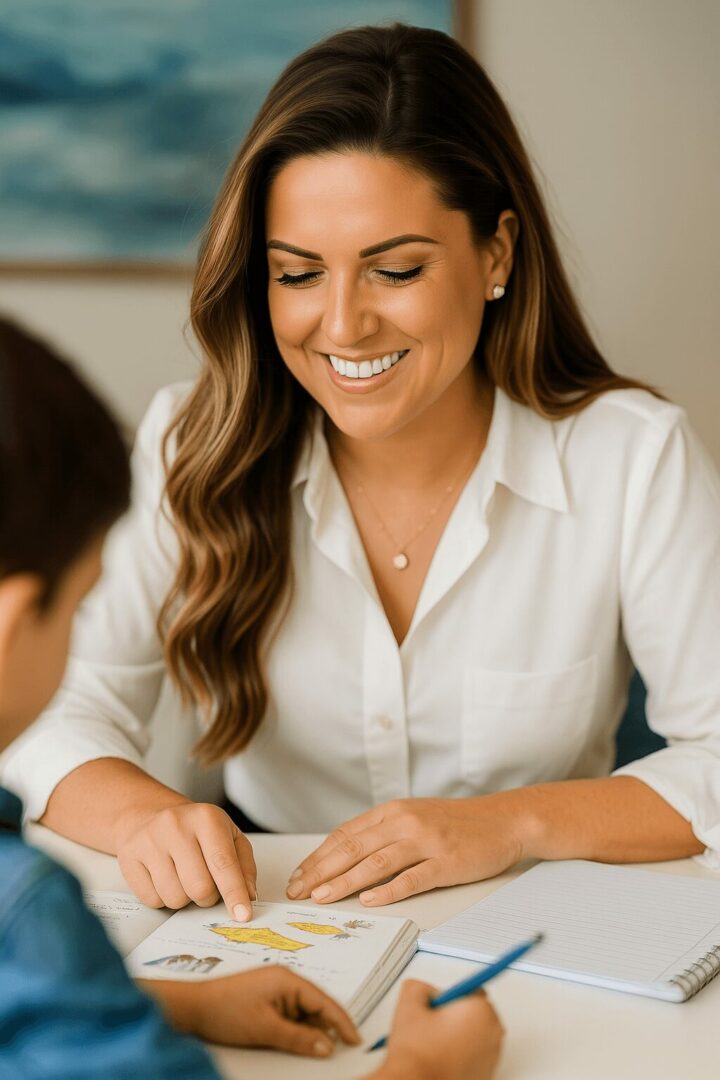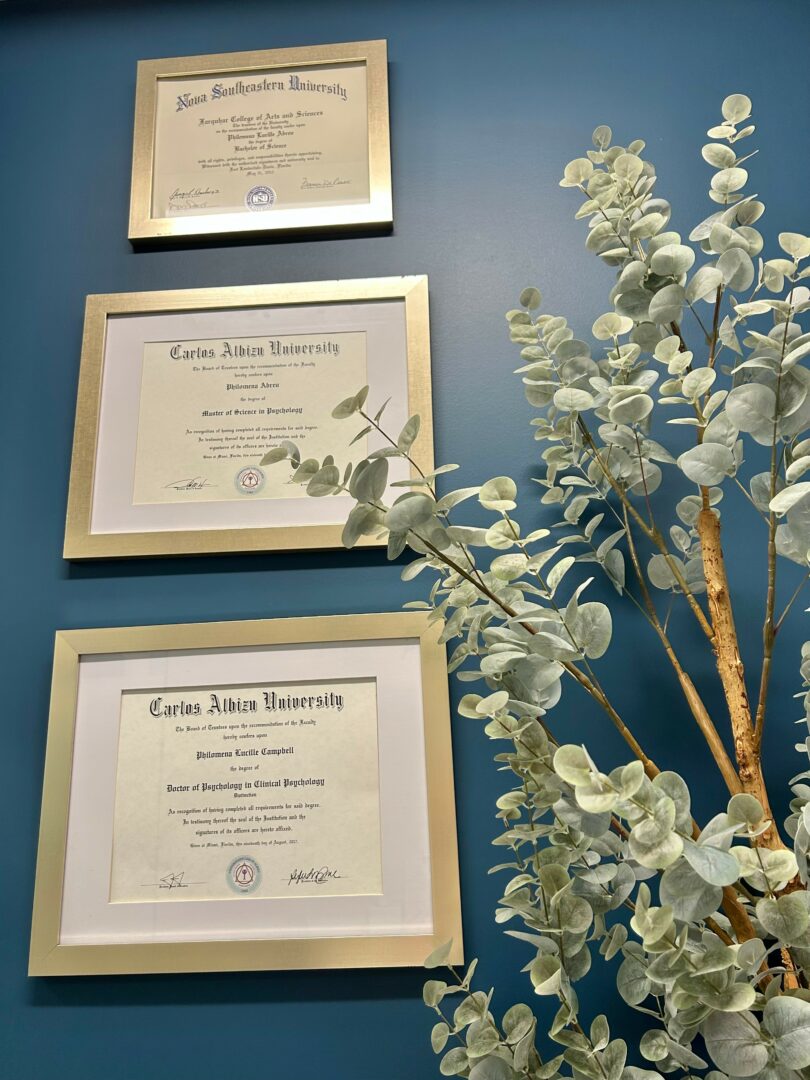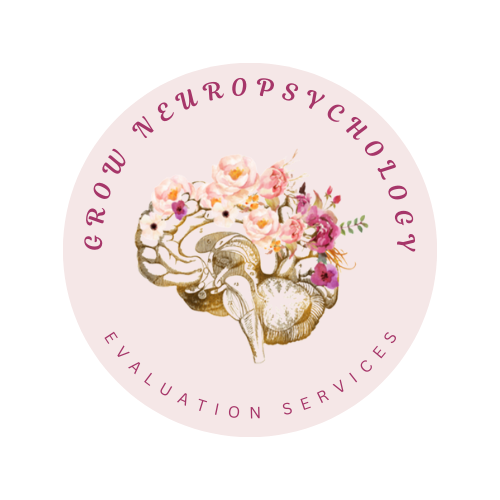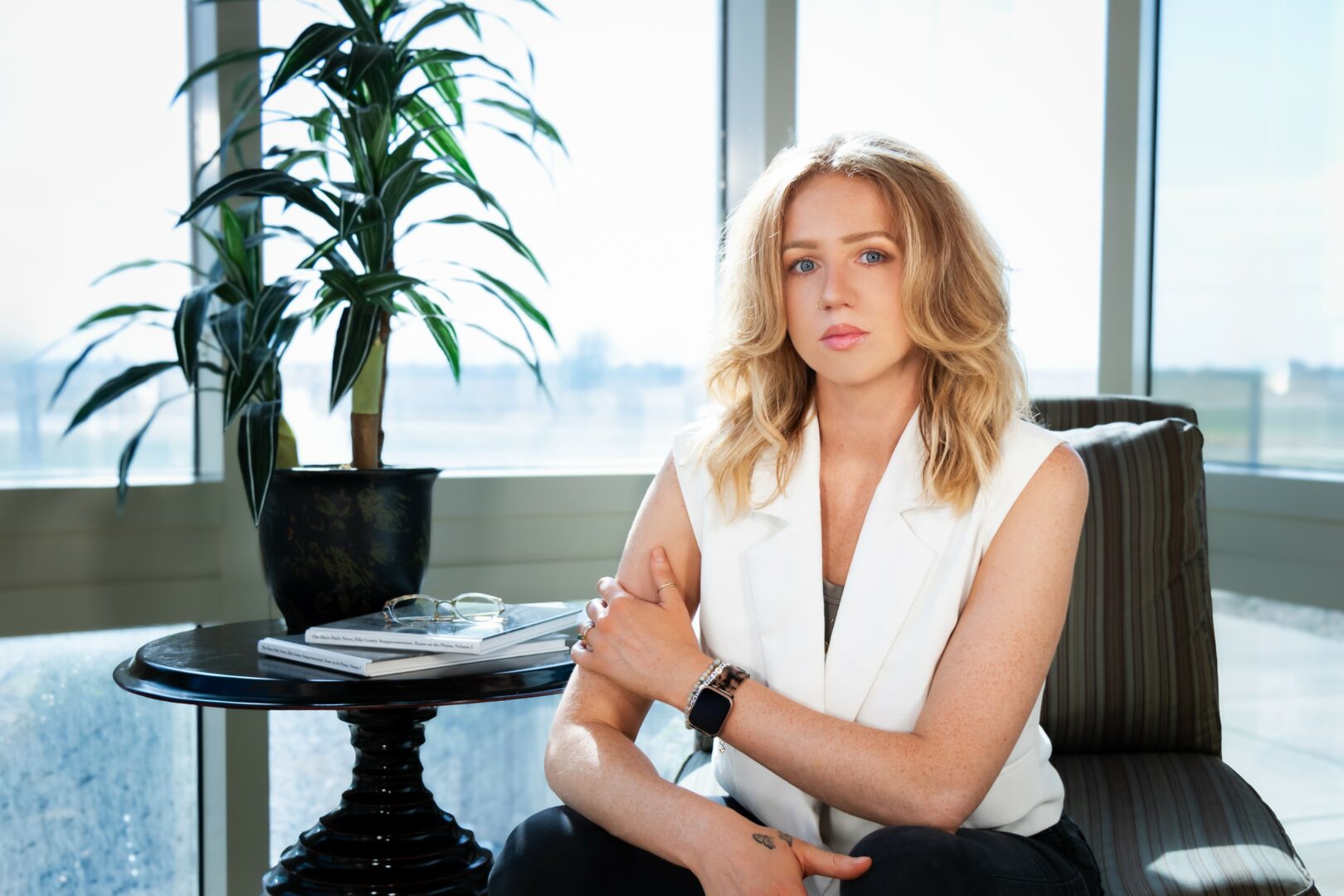We’re excited to introduce you to the always interesting and insightful Dr. Philomena Campbell. We hope you’ll enjoy our conversation with Dr. Philomena below.
Hi Dr. Philomena, thank you so much for joining us today. There are so many topics we could discuss, but perhaps one of the most relevant is empathy because it’s at the core of great leadership and so we’d love to hear about how you developed your empathy?
My empathy really comes from lived experience. I grew up with family members who had ADHD and learning differences, and I saw how hard they worked just to feel understood. Even as a kid, I wanted to help them make sense of what they were struggling with. That shaped the way I view children and their families; not as problems to solve, but as people who deserve clarity, support, and someone in their corner.
Now, as a parent myself, that understanding has only deepened. I’ve watched my own children navigate systems that are supposed to support them, yet often fall short. It is incredibly stressful to see your child struggle and not know exactly how to help. And beyond that, I know how overwhelming the entire process can be: deciding to seek help, finding someone you trust, taking in a lot of information, and trying to figure out next steps. Families don’t need more stress added to that.
That’s a big part of why I do what I do: I want to make this process feel manageable and the information feel empowering. My goal is to support families in a way that brings relief and clarity, not confusion, so they leave feeling understood and confident about where to go next.

Appreciate the insights and wisdom. Before we dig deeper and ask you about the skills that matter and more, maybe you can tell our readers about yourself?
I’m a pediatric clinical neuropsychologist, and I founded Grow Neuropsychology to give families in the Tampa Bay area a clearer, more compassionate path to understanding their child’s learning, behavior, and development. I work with children, teens, and young adults to assess things like ADHD, learning differences, executive functioning challenges, and more complex medical or neurological conditions. What I love most about this work is helping families finally get the answers they’ve been searching for, and seeing the relief that comes when everything starts to make sense. One of the things parents tell me most often is, “I wish I found you sooner.” That means everything to me, because it tells me the process felt supportive, understandable, and truly helpful.
I designed my practice very intentionally. Evaluations can feel overwhelming, clinical, and confusing, so I created a space where families feel supported from start to finish. My goal is to translate complicated information into something parents can understand and use right away, and to make the process feel manageable, not stressful. I want every child to feel seen for their strengths, not just their struggles, and every parent to walk away feeling empowered and confident about next steps. Families deserve clarity, not more stress.
What feels especially exciting right now is how quickly our community has embraced this mission. I’ve been collaborating with local schools, pediatricians, and allied professionals to build a stronger and more connected network of support. I’m committed to keeping it deeply personalized, warm, and rooted in the belief that every child deserves a clear roadmap and a team who truly understands them.
Grow Neuropsychology has become a meaningful extension of my values as both a clinician and a mom, and I’m incredibly grateful to serve families in this community.

There is so much advice out there about all the different skills and qualities folks need to develop in order to succeed in today’s highly competitive environment and often it can feel overwhelming. So, if we had to break it down to just the three that matter most, which three skills or qualities would you focus on?
Three qualities have been especially impactful in my journey: empathy, clarity, and collaboration.
Empathy has guided every part of my work. Understanding what families are feeling and what children are experiencing helps me show up in a grounded, compassionate way. For anyone early in their career, cultivating empathy means listening more than you speak, staying curious, and remembering that every child and every parent is coming to you with a story.
Clarity has also been essential. Neuropsychology can be overwhelming, even for professionals, so being able to translate complex information into something meaningful for families has become one of my biggest strengths. For those starting out, practice explaining difficult ideas in simple language. If you can make your work accessible, you can make it truly impactful.
The third piece is collaboration. I wouldn’t be where I am without the teachers, pediatricians, therapists, and colleagues who partner with me to support kids. Building relationships makes the work more effective and makes families feel less alone. My advice for developing this skill is to reach out often, ask questions, share what you’re learning, and see every professional as part of the same team working toward a child’s success.
Together, these qualities have shaped both my practice and the way I care for families, and they’re skills that can be intentionally nurtured from the very beginning.

Okay, so before we go, is there anyone you’d like to shoutout for the role they’ve played in helping you develop the essential skills or overcome challenges along the way?
The people who have been most helpful in my journey are my husband, my older sister, and my parents. They’ve supported me in ways that were practical, emotional, and truly foundational to where I am today.
During graduate school, my sister and husband spent countless hours helping me study, quizzing me for exams, and encouraging me through the long days and late nights. My parents supported me both emotionally and practically, so I could focus on my studies. Their belief in me made the hardest seasons feel manageable. When it came time for internship, my husband moved across the country with me without hesitation, and then again to Tampa for my residency. He believed in my goals even when they required big sacrifices and big transitions.
When I was afraid to start my own practice, he was my biggest cheerleader. He taught himself the technical skills I needed to launch my website, helped research programs and software, and is always excited to brainstorm ideas for the future of Grow Neuropsychology. He also cared for our newborn while I was doing the behind-the-scenes work of building the practice; something I am endlessly grateful for.
My sister and parents have continued to support me well into my career. They help watch my children so I can see families, write reports, or attend meetings, and they show up in the most thoughtful, practical ways. Their support allows me to pour into my work while still being present as a mom.
Their encouragement didn’t just help me overcome challenges; it shaped me into the clinician, business owner, and parent I am today. I’m deeply grateful for the steady, behind-the-scenes love that has made each step of this journey possible.
Contact Info:
- Website: https://www.growneuropsychology.com/
- Instagram: @grow.neuropsychology
- Facebook: https://www.facebook.com/profile.php?id=61565209377192
- Linkedin: https://www.linkedin.com/in/philomena-campbell-psy-d-37782a97



so if you or someone you know deserves recognition please let us know here.




